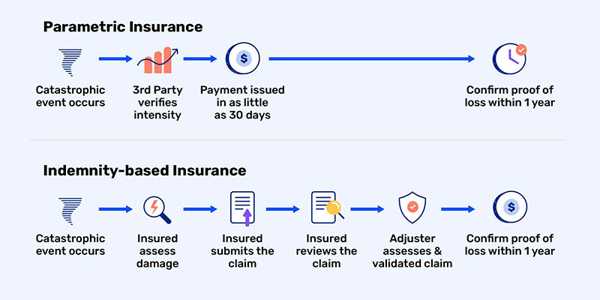
Why Vision Insurance is a Sight-Saving Investment
Vision insurance is a crucial facet of healthcare that is frequently neglected. It subsidizes expenses associated with ocular care and helps preserve optimal eye health. Without affordable eye care insurance, routine eye examinations and treatments can become prohibitively expensive, prompting many to overlook their ocular well-being. Investing in vision insurance ensures access to timely eye examinations and requisite treatments, which can avert severe ophthalmic conditions in the future.
Vision insurance is a crucial facet of healthcare that is frequently neglected. It subsidizes expenses associated with ocular care and helps preserve optimal eye health. Without affordable eye care insurance, routine eye examinations and treatments can become prohibitively expensive, prompting many to overlook their ocular well-being. Investing in vision insurance ensures access to timely eye examinations and requisite treatments, which can avert severe ophthalmic conditions in the future.
Benefits of Vision Insurance
The benefits of vision insurance are numerous, rendering it a sensible investment:
- Routine Eye Examinations: Vision insurance covers regular eye examinations, which are pivotal for detecting early signs of ophthalmic diseases such as glaucoma and cataracts.
- Corrective Lenses: The cost of spectacles and contact lenses can be substantial. Vision insurance helps alleviate these expenses, making corrective lenses more accessible.
- Preventive Care: Regular eye examinations and access to affordable treatments prevent the progression of serious eye conditions.
- Specialized Treatments: Certain plans encompass advanced treatments and surgical procedures, ensuring comprehensive ocular care.
Choosing Vision Insurance Plans

When choosing vision insurance plans, it is imperative to consider several benefits of vision insurance to ensure optimal coverage:
- Coverage: Opt for plans encompassing various services, including routine examinations, lenses, and surgical procedures.
- Cost: Evaluate premiums, deductibles, and co-pays to find a plan that aligns with your financial parameters.
- Provider Network: Ensure the plan includes your preferred eye care professionals and facilities.
- Flexibility: Some plans allow you to choose out-of-network providers, which is advantageous if you have specific ocular care requirements.
Affordable Eye Care Insurance Options
Affordable eye care insurance is essential for maintaining optimal eye health without incurring excessive costs. Here are some strategies to find the most cost-effective options:
- Comparison Shopping: Compare various insurance providers to find the most favorable rates and coverage.
- Employer-Sponsored Plans: Numerous employers offer vision insurance as part of their benefits package. Verify if your employer provides such options.
- Discount Programs: Certain organizations offer discount programs for ocular care, which can be an alternative to traditional insurance.
- Government Assistance Programs: Explore government programs that provide vision care assistance, particularly if you qualify for Medicaid or Medicare.
Why Vision Insurance is a Wise Investment
When choosing a vision insurance plan, the following benefits of vision insurance are considered beyond financial savings:
- Early Detection: Regular eye examinations can detect early signs of diseases, leading to timely intervention and improved outcomes.
- Enhanced Quality of Life: Optimal vision is indispensable for daily activities, and vision insurance helps maintain ocular health, enhancing the quality of life.
- Long-Term Savings: Preventive care and timely treatments can save you money in the long run by circumventing costly surgeries and treatments for advanced ocular conditions.
The Impact of Vision Insurance on Preventive Eye Care
Vision insurance plays a pivotal role in fostering preventive eye care. Here are some critical aspects:
- Detection of Asymptomatic Conditions: Vision insurance facilitates the early detection of asymptomatic conditions such as diabetic retinopathy and macular degeneration.
- Monitoring Ocular Health: Regular eye examinations enable consistent monitoring of ocular health, ensuring prompt responses to adverse changes.
- Educational Resources: Many vision insurance plans offer educational resources on eye health, empowering policyholders to make informed decisions about their care.
Financial Benefits of Vision Insurance
The financial benefits of vision insurance extend beyond mere cost savings on eyewear. Here are several fiscal benefits:
- Reduced Out-of-Pocket Expenditures: Vision insurance significantly reduces out-of-pocket expenditures for eye care services, including examinations, treatments, and surgeries.
- Subsidized Premiums: Employers often subsidize vision insurance premiums, making it more affordable for employees.
- Tax Advantages: Premiums for vision insurance may be tax-deductible, providing additional financial relief.
Vision Insurance for Families
Vision insurance benefits for families include necessary eye care for all members. Here are some advantages:
- Pediatric Eye Care: Vision insurance often covers pediatric eye examinations and treatments, which are crucial for the early detection of vision issues in children.
- Family Plans: Many insurance providers offer family plans that cover all members and provide comprehensive eye care at a reduced cost.
- Vision Development: Regular eye examinations for children can detect vision problems early, preventing learning difficulties related to poor vision.
Vision Insurance and Aging
As individuals age, ocular health becomes increasingly important. Vision insurance can provide essential support for aging individuals:
- Coverage for Age-Related Conditions: Many vision insurance plans cover treatments for age-related conditions such as cataracts, glaucoma, and macular degeneration.
- Access to Specialized Care: Older adults often require specialized eye care, which vision insurance can help afford.
- Regular Monitoring: Vision insurance facilitates regular monitoring of ocular health, which is critical for detecting and managing age-related changes.
Technological Advancements in Eye Care

- Advanced Diagnostic Tools: Insurance plans often use advanced diagnostic tools, such as OCT scans, which provide detailed images of the eye's internal structure.
- Laser Treatments: Coverage may include laser treatments for conditions like glaucoma and diabetic retinopathy, which can prevent vision loss.
- Innovative Therapies: Vision insurance can help cover the cost of innovative therapies, including new treatments for dry eye and age-related macular degeneration.
Comprehensive Coverage Options
- Basic vs. Comprehensive Plans: Basic plans may cover routine examinations and corrective lenses, while comprehensive plans also cover treatments and surgeries.
- Network Restrictions: Some plans require using in-network providers, while others offer more flexibility.
- Additional Benefits: Some vision insurance plans include discounts on elective procedures like LASIK or cosmetic eyewear.
Vision Insurance and Sports Performance
- Specialized Eye Care: Providing access to sports vision specialists who can assess and improve visual skills specific to sports.
- Protective Eyewear: Coverage for protective eyewear reduces the risk of sports-related eye injuries.
- Regular Assessments: Regular vision assessments help athletes maintain top visual performance.
Vision Insurance and Digital Eye Strain
In the digital age, many people suffer from digital eye strain. Vision insurance helps mitigate this issue:
- Blue Light Protection: Many plans cover blue light filtering lenses, which reduce eye strain from screens.
- Ergonomic Advice: Some insurance plans offer resources on ergonomic setups to minimize eye strain.
- Treatment Coverage: Coverage for treatments related to digital eye strain, such as eye drops and specialized lenses.
Conclusion
Vision insurance is invaluable for anyone seeking to maintain optimal eye health and avoid exorbitant eye care expenses. By understanding the benefits of vision insurance, choosing the appropriate plan, and finding affordable eye care insurance options, you can ensure your eyes are well protected. Do not underestimate the significance of vision insurance – it is a sight-saving investment that yields substantial returns in the long term.





